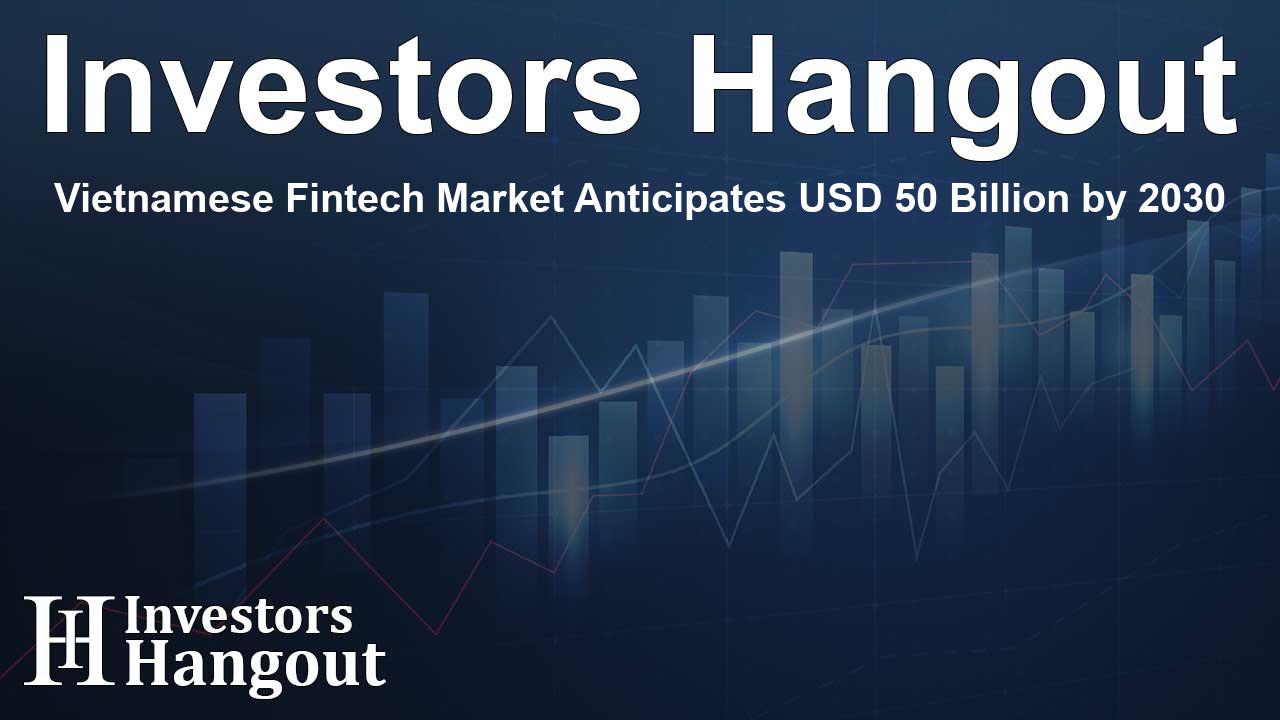Vietnamese Fintech Market Anticipates USD 50 Billion by 2030

Overview of Vietnam's Fintech Market Growth
The Vietnamese fintech market is undergoing a remarkable transformation and is projected to exceed USD 50 billion by 2030, with a remarkable compound annual growth rate (CAGR) of 21.48%. It had a valuation of USD 15.67 billion in 2024, signaling tremendous potential for innovation and investment in the financial technology sector.
Driving Forces Behind Market Expansion
The surge in Vietnam's fintech industry can be attributed to several key drivers. A young population, which is both tech-savvy and eager to adopt digital solutions, alongside increasing internet penetration and a burgeoning middle class, have significantly contributed to this growth narrative. The landscape is particularly vibrant due to the escalating usage of digital payments and mobile wallets.
Digital Payments and Mobile Wallets Booming
In recent years, Vietnam has seen a surge in the number of digital payment users. By the end of 2023, the country reported approximately 32.77 million active e-wallet users. Payment transactions via internet and mobile technology have experienced impressive annual growth rates of 52% and 103.3% respectively. Notably, QR code payments skyrocketed, more than doubling in both volume and value.
Adaptation to Digital Transformation
The digital transformation trend is primarily fueled by the widespread acceptance of mobile wallets and QR code transactions. As smartphone use in Vietnam reached about 84% in 2024, more consumers are resorting to mobile devices to access financial services and conduct transactions. This high smartphone penetration allows consumers to manage their financial lives from virtually anywhere.
Investment Landscape and Challenges
The growing enthusiasm for fintech is backed by increasing venture capital investments in startups aiming to penetrate this lucrative market. However, the sector faces substantial challenges due to regulatory hurdles which can often hinder innovation and investment. Although Vietnam's government is making strides by piloting initiatives to bolster a legal framework for fintech, many sectors, including peer-to-peer lending and cryptocurrency, still act in unclear legal territories.
Navigating Regulatory Challenges
Despite the promising outlook, fintech startups must navigate a landscape with fragmented regulations. The absence of a holistic and inclusive legal framework creates uncertainty for both consumers and providers, stymying innovation. Many investors remain cautious due to this regulatory ambiguity, which makes it difficult for fintech companies to thrive. Adequate data protection laws aligned with international standards remain crucial to ensure customer trust and privacy.
Emergent Trends in the Fintech Sector
With the rise of digital payments at the forefront, mobile wallets are seeing explosive growth. This trend is spurred by government efforts to maintain momentum toward a cashless economy, offering consumers convenience and easier access to various financial services. E-wallets, including favorites like MoMo and ZaloPay, are rapidly evolving and expanding their offerings beyond basic transactions to include features like savings, insurance, and even integrations with retail services.
Competitive Dynamics in the Market
As the market grows, competition intensifies among wallet providers striving to capture the rapidly expanding user base. To remain competitive, e-wallets are evolving into multifaceted 'super apps' that integrate both financial and lifestyle services. This trend will likely reshape how Vietnamese consumers engage with financial products in their daily lives.
Profiles of Leading Players in Vietnam's Fintech Scene
Some of the key players driving innovation and competition in Vietnam's fintech market include:
- MoMo
- ZaloPay
- AirPay
- Moca
- TIMA
- VayMuon
- TrustCircle
- Hudong
- TheBank
- iWealth
Future Outlook and Market Projections
The Vietnam fintech sector is positioned for extraordinary growth, with increasing integration of technology in financial services and ongoing government support. As the market matures, the necessity for a cohesive regulatory framework will become increasingly apparent to ensure sustained growth and encourage further investment while safeguarding consumer rights.
Frequently Asked Questions
What is the projected value of the Vietnamese Fintech market by 2030?
The Vietnamese fintech market is expected to reach USD 50.21 billion by the year 2030.
What are the primary drivers behind the growth of fintech in Vietnam?
The growth is driven by a young population, increasing internet access, mobile wallet adoption, and significant venture capital inflow.
Which digital payment trends are currently shaping the market?
The rise of digital payments, especially through mobile wallets and QR codes, is a defining trend reshaping the financial landscape.
What are the challenges fintech companies are facing in Vietnam?
Regulatory uncertainty, lack of cohesive frameworks, and compliance issues present significant challenges to fintech innovation in Vietnam.
Who are the major players in Vietnam's fintech sector?
Leading players include MoMo, ZaloPay, AirPay, and several others who are transforming how consumers interact with financial services.
About The Author
Contact Addison Perry privately here. Or send an email with ATTN: Addison Perry as the subject to contact@investorshangout.com.
About Investors Hangout
Investors Hangout is a leading online stock forum for financial discussion and learning, offering a wide range of free tools and resources. It draws in traders of all levels, who exchange market knowledge, investigate trading tactics, and keep an eye on industry developments in real time. Featuring financial articles, stock message boards, quotes, charts, company profiles, and live news updates. Through cooperative learning and a wealth of informational resources, it helps users from novices creating their first portfolios to experts honing their techniques. Join Investors Hangout today: https://investorshangout.com/
The content of this article is based on factual, publicly available information and does not represent legal, financial, or investment advice. Investors Hangout does not offer financial advice, and the author is not a licensed financial advisor. Consult a qualified advisor before making any financial or investment decisions based on this article. This article should not be considered advice to purchase, sell, or hold any securities or other investments. If any of the material provided here is inaccurate, please contact us for corrections.
